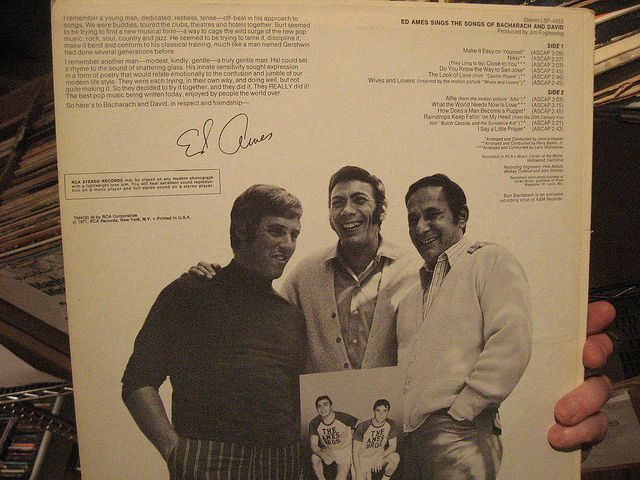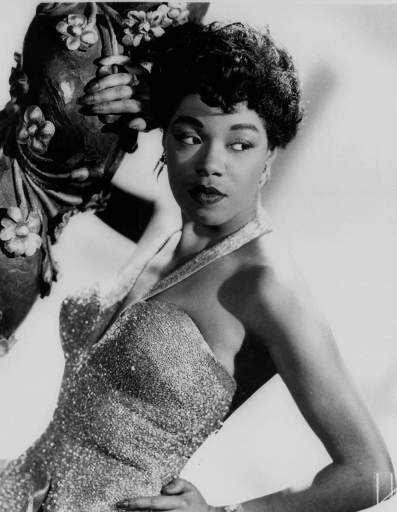Prayers, promises and Tulsa: The words of Hal David
By Tony Sarabia, Richard Steele

Prayers, promises and Tulsa: The words of Hal David
By Tony Sarabia, Richard Steele
When I was working at Domino’s Pizza during my college days, one of my co-workers remarked during a conversation about music that he was more into words of a song than the music. Well, being deep into my Blue Note jazz love affair I strongly disagreed; not remembering my enthusiasm for Bob Dylan’s poetry in high school or Tim Rice’s “Everything’s Alright” and his other gems from Jesus Christ Superstar, of which I knew all the words.
Boy we’ve sure had some great lyricists throughout our country’s musical history: Gershwin, Cole, Smokey, Joni, Cash and David.
For many, Hal David doesn’t come to mind as quickly as the others but the titles of his songs are familiar even if you can’t recite an entire Hal David song; he’s written or co-written more than 700 tunes!
Among his more classic tunes: “One Less Bell To Answer,” “Alfie,” “Walk On By,” “Close to You” and “A house Is Not A Home.”
Hal David once said that unless he can create an emotion to which he can respond, he throws away the lyric. No wonder he was elected to the Songwriters Hall of Fame; he had high standards.
David was most associated with Burt Bacharach, who wrote the music to many of David’s most memorable songs. They met at the famous Brill Building in 1956 and scored their first hit, writing “The Story of My Life” for country singer Marty Robbins.
The songwriting pair’s number one vehicle for their work was Dionne Warwick, whom David described as their “magical interpreter.” But Hal David’s words were sung by scores of others from Sarah Vaughn and the Beatles to disco diva Gloria Gaynor and The Dells.
This week Richard and I (joined by Chicago-based singer Joanie Pallatto on Eight Forty-Eight) will survey some of David’s notable songs as we pay tribute to a songsmith who was recently honored — along with Bacharach — by President Barack Obama, who said of the pair, “there’s an unmistakable authenticity, they captured the emotions of our daily lives — the good times, the bad times, and everything in between.” Indeed. Farewell Hal David.
Here are few of my favorite interpretations of Hal David hits:
Isaac Hayes was a behind the scenes guy before releasing the 1969 landmark soul album Hot Buttered Soul, which kicks off with his rendition of “Walk On By.” He takes the pop flavored song made famous by Dionne Warwick and turns it inside out; complete with his baritone sing/speak and occasional wah- wah and fuzz guitar, wicked organ, strings and a trio of back up female backup singers. This version is a killer that’s been sampled many times. “Sock it to me Mama!”
Canadian country-rock and folk duo Ian & Sylvia recorded “Twenty Four Hours From Tulsa” in 1966, three years after the original recording by Gene Pitney three years earlier. The song has been covered by, among others, Dusty Springfield and Chet Baker, who keeps the southwest feeling with the addition of Mariachi brass. On their version, the duo replace the strings electric and acoustic guitar and some well-placed organ riffs. The song is mostly a showcase for Ian’s voice with Sylvia provided falsetto harmonies.
We hit the dance floor for this take on “I Say A Little Prayer” by disco and soul diva Gloria Gaynor. It’s got a Soul II Soul feel and her voice still hits the mark. Nothing more to say, gotta go dance now.
Richard Steele:
The late Hal David, who died Saturday, was born in Brooklyn, N.Y. in 1921. He was a lyricist who became one half of a very successful songwriting team with Burt Bacharach in the late ‘50s through the early ‘70s. Some of his and Bacharach’s greatest successes were the result of a musical alliance with a former session singer named Dionne Warwick, which resulted in a long string of hits in the 1960s.

The team of David and Bacharach came up with the title song for the movie Alfie that starred Michael Caine. The backstory is a bit complicated. When the musical duo were approached about doing the song, they immediately thought of their vocal muse, Dionne Warwick. But the movie producers said no. Since the film was being done in England, they insisted on a British vocalist. Hal and Burt went with Cilla Black instead. She really disliked the “Alfie” song — with her British sensibility, she thought Alfie sounded like a dog’s name. She did it anyway, and it had some success, but it wasn’t used in the film. Actually, the song was only heard over the end credits, and that version was sung by Cher. That’s because Cher was signed to a label that had a relationship with the film company. Her single was a non-starter. But finally, after countless unsuccessful versions by other singers, Dionne Warwick recorded it and the song became an “instant” classic. It was nominated for an Academy Award, and Warwick’s performance at the Oscars was a show-stopper.
David and Bacharach teamed up to write the song “Wives and Lovers” for a 1963 movie of the same name. You may be surprised to know that the song was not heard in any part of the movie, nor was it on the soundtrack. There was a little- known practice back then of writing movie “exploitation songs.” These were songs written using the title of the song (which, not so coincidentally, was also the movie title), as a device to promote a film. Every time you heard the song on the radio, you’d think of the movie. The guy who recorded the song was a successful pop vocalist named Jack Jones, and he won a Grammy for his efforts.

